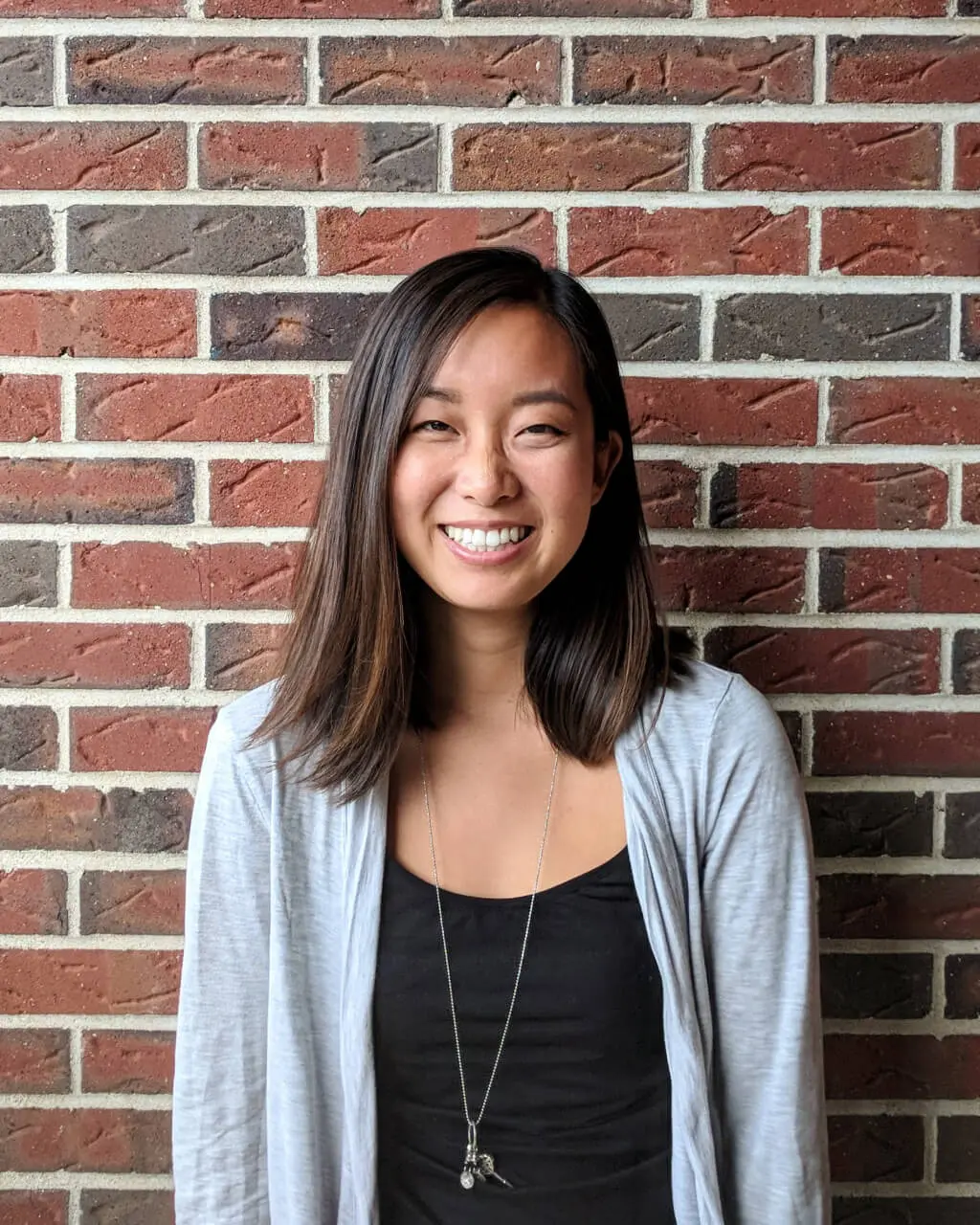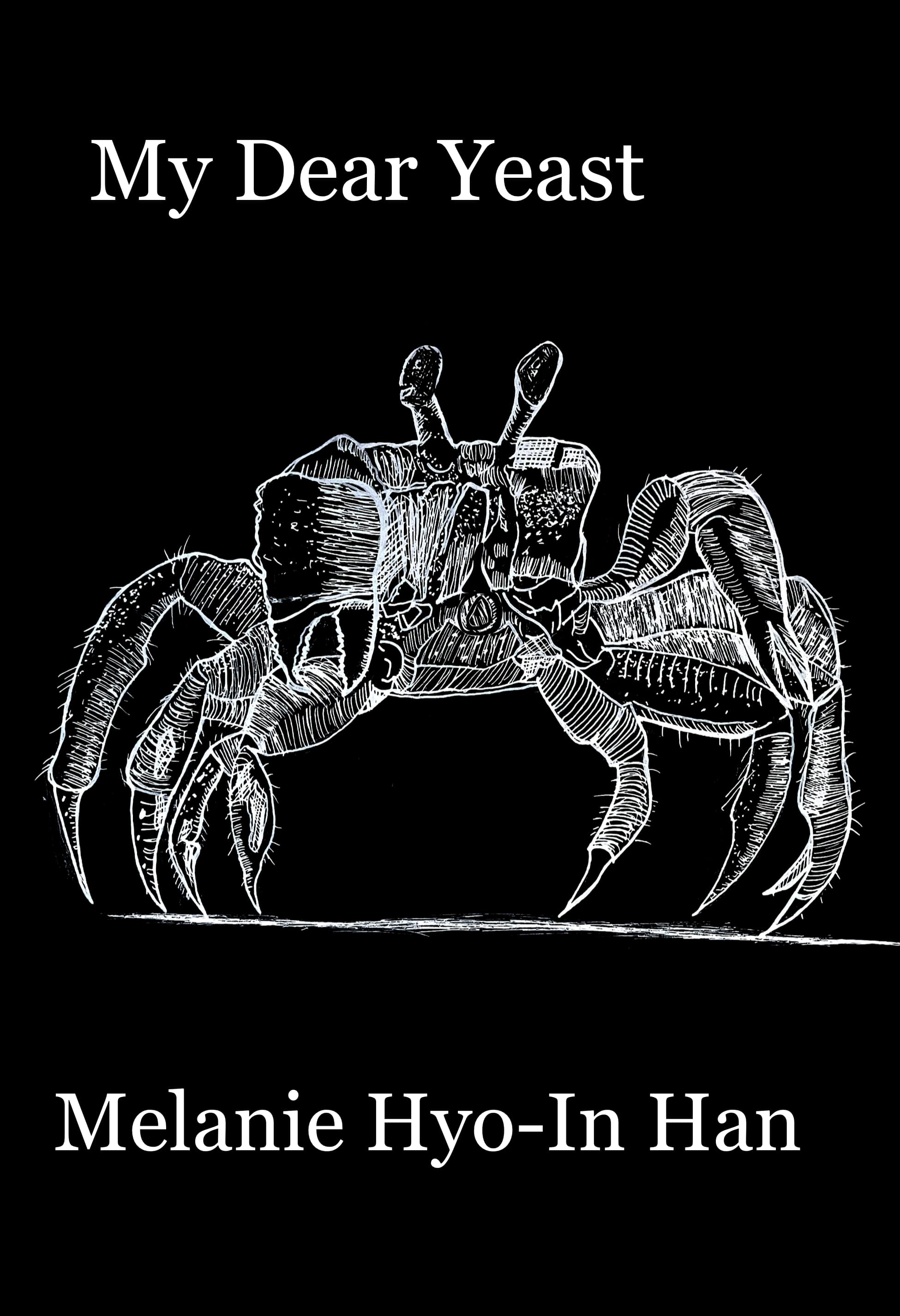Published November 4th, 2024
Interview
by Sofija Popovska
Poet Melanie Hyo-In Han was born in Korea, raised in East Africa, and lived in the US before relocating to the UK. Her experiences as a TCK (Third Culture Kid) inform her art; she channels, in her own words, “her own childhood experiences and (...) identity, belonging, and culture through the use of fragmented form and inclusion of multiple languages” in her poetry. In this interview, Tint contributor Sofija Popovska speaks with her about her 2023 poetry collection, My Dear Yeast (Milk and Cake Press): a richly textured, heartbreaking, and heartwarming exploration of the many facets of intercultural experience, with its richness, loss, and (un)belonging.
Sofija Popovska: Thank you so much for agreeing to talk with me about your beautiful, vulnerable, intricate poetry collection, My Dear Yeast. When I saw the title, I was immediately curious what it meant. Having read both the eponymous poem and essay published in Tint Journal, it seems to be loaded with both loss and enrichment, being connected to both the avoidance and subsequent return to the Korean language that you describe in the essay. What does this title mean to you?
Melanie Hyo-In Han: Thank you for your kind words. The title My Dear Yeast is deeply meaningful to me as it was initially a Google (mis)translation of my Korean name into English, but “yeast” also became a symbol since, in its essence, it’s a living organism that causes a process of transformation. This metaphor encapsulates my journey with language and identity. When I was younger, I avoided the Korean language but realized that it was such a huge loss, a detachment from my roots. Upon returning to it, I experienced an enrichment, a transformation that parallels the way yeast works. The title reflects this duality of loss and enrichment, my reconciliation with my cultural heritage and the linguistic revival that has become an integral part of my identity.

Sofija: As a third culture kid (TCK), experiences where teachers don’t even try to pronounce your name and classmates judge you for having anything other than a plain sandwich for lunch make finding a place where you belong look a lot like carving out a space for yourself. “and you told me” is such a poem where cultural difference empowers claiming space for yourself and resisting cultural, literary, and interpersonal arrogance — but other poems, like “Stacked Memories,” show cultural difference as a source of shame and unbelonging. Can you tell me about the different facets of (un)belonging that you explore in My Dear Yeast?
Melanie: I wanted My Dear Yeast to navigate the multifaceted nature of belonging and (un)belonging. As you mentioned, in poems like “and you told me,” cultural differences are sources of strength and empowerment, where I resist dominant cultural narratives. Conversely, “Stacked Memories” portrays cultural differences as burdens, highlighting moments of exclusion. These different aspects reflect the complexity of the TCK experience — sometimes cultural heritage is a source of pride; at other times, it's a painful reminder of not fitting in. The collection aims to capture this spectrum, acknowledging both the pain of alienation and the empowerment that comes from embracing one's identity.
Sofija: Speaking of “Stacked Memories,” many of the experiences and memories that constitute your poems are mediated through food. Is there a specific reason why you chose food as a lyrical medium?
Melanie: The simple answer is that I love food. But I also believe in food as a powerful medium for expressing memory and emotion as it is inherently tied to culture, family, and identity. In My Dear Yeast, I wanted food to serve as a bridge between the past and present, between different cultural identities. It's a tangible connection to heritage and a way to explore the sensory and emotional landscapes of experiences. Food can embody both the comfort of familiarity and the complexities of cultural difference, conveying the nuances of the TCK journey.
Sofija: Your choice to infuse English with words and sentences from Swahili and Korean raises many fascinating questions about what is (un)translatable. As someone who grew up with three languages myself, one of which was English due to its status as a lingua franca, it seemed to me that to render everything in English would deprive your poems of a large portion of their cultural connotations. Could you talk about some of the meanings that you preserved / conveyed through your use of Korean and Swahili?
Melanie: I definitely agree with you that English can’t do everything. Incorporating Korean and Swahili into my poetry has allowed me to preserve and convey cultural nuances that might be lost in translation. Each language carries its own set of connotations, emotions, and histories. For instance, certain Korean words capture sentiments tied to familial and cultural contexts that English cannot fully express. Similarly, Swahili phrases encapsulate specific references and experiences from my childhood in East Africa. By blending these languages with English, I wanted to create a richer, more textured narrative that honors the complexity of the TCK identity and experiences.

Sofija: In “the release” and “Happy Bi(rth)day,” you explore the experience of discovering that you “like women, too.” This experience reads as euphoric, satisfying, and liberating — as can be seen in the last lines of “Happy Bi(rth)day”: “oh, how good / it feels to say good-bi to this closet I never liked.” How does this self-discovery fit into the broader concept of belonging / finding a place for yourself in My Dear Yeast? Has realizing that you are bisexual changed anything about the way you write poetry?
Melanie: I think discovering and embracing my bisexuality has been a crucial part of my journey toward self-acceptance and belonging. It has allowed me to find and create spaces where I can be my true self. Obviously in My Dear Yeast, this self-discovery is woven into the broader themes of finding a place where I belong, and realizing my bisexuality has influenced my writing, infusing it with a sense of liberation and authenticity. It has opened up new avenues for exploring identity, love, and desire, enriching my poetic voice and expanding the ways in which I engage with themes of belonging and self-discovery.
Sofija: Aside from the euphoric aspects of life, My Dear Yeast also deals with pain, loss, and grief, both personal and intergenerational. Has writing about the traumatic, such as in “Holding On,” “Tumaini,” “Onslaught,” and “She grew up by the water” affected your relationship with these experiences? In these cases, was writing an act of remembrance, healing, a mix of both, or something else entirely?
Melanie: Writing about trauma in My Dear Yeast has definitely been both an act of remembrance and healing. It has allowed me to process and articulate complex emotions and experiences that might otherwise remain unspoken. By transforming pain and grief into poetry, I've been able to create a space for reflection and understanding, both for myself and (hopefully) my readers. This process has deepened my relationship with these experiences, enabling me to make sense of them while also moving toward healing. As cheesy as this may sound, writing, for me, serves as a conduit for exploring and ultimately reconciling with difficult aspects of life.
Sofija: In light of such pain, language can begin to seem flawed and insubstantial in terms of its capacity to render certain aspects of life. In poems like “Korean Survivors [blank space] Japanese ‘Comfort Women’” and “Tumaini,” you use techniques such as erasure and non linearity to expand the expressive potential of language and visualize lived experience — such as the abuse of Korean women by the Japanese government, the impact of which lacks sufficient documentation and has thus been erased from history. Was your use of these techniques a way to supplement the representation of experience where words failed? Does such language enrichment result automatically from the complexity of transnational, multigenerational experiences?
Melanie: This is such a great question. Yes, absolutely. The use of techniques like erasure and nonlinearity in My Dear Yeast is a deliberate attempt to push the boundaries of language and better represent experiences that are often inadequately captured by conventional means. These techniques have allowed me to address the gaps and silences in historical and personal narratives, making visible what has been erased or marginalized. I think this approach is deeply connected to the complexities of transnational and multigenerational experiences, where straightforward narratives often cannot fully capture the whole scope of lived reality. Through these forms of language and experimental poetic forms, I aim to convey the depth and intricacy of these experiences more effectively.
Sofija: Finally, are you working on anything new, or do you have any future projects in mind? If you do, what themes are you going to explore next?
Melanie: Yes, I’m actually working on a few things. At the moment, I have two poetry books under contract — one of them is a chapbook of haibuns about nature and the other is a full-length collection that addresses the uprooting and replanting of self in different locations. Please be on the lookout for those in 2025 and 2026!
I’m also working on a new collection of poetry and hope to spend the rest of the year completing my manuscript that explores the historical trauma and resilience of Korean “comfort women” during World War II. This project currently comprises dozens of poems that delve into the concept of “han,” a Korean sentiment of collective grief and unresolved trauma. Through this work, I want to contribute to the broader discourse on transnational identity and historical injustices, shedding light on the experiences of these women and their enduring impact on Korean identity and history. This project is a natural extension of the themes I explored in My Dear Yeast, deepening my engagement with issues of memory, trauma, and resilience. I’ll definitely let you know when the project turns into something.
Nationality: North Macedonian
First Language(s): Macedonian
Second Language(s):
English
Supported by:

